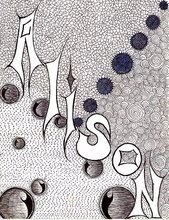Can you pronounce this word? Hegel and Steiner can...How does Sophocles' Antigone and Hegel's Phenomenology of the Mind connect to one another-Perhaps Steiner can answer that question for us. Upon opening Antigones to a very random page and proceeding to read it, I have learned quite a bit about Hegel's most philophosical piece. Steiner deams that although references to Antigone in Hegel's Phenomenology have "not been studied in detail," he points out that it is the strengh behind Hegel's dramactically constructed first six sections: "it has a great drama as its core of reference." After reading (and re-reading, of course) I felt in order to do this page justice, I needed to understand what Hegel's Phenomenology of the Mind acutally is. Phenomenology has been studied by several different people, but Hegel was one of the first. Here is what Wiki has to say about it: "he(Hegel) maintains, we must examine actual knowing as it occurs in real knowledge processes. This is why Hegel uses the term "phenomenology". "Phenomenology" comes from the Greek word for "to appear", and the phenomenology of mind is thus the study of how consciousness or mind appears to itself. In Hegel's dynamic system, it is the study of the successive appearances of the mind to itself, because on examination each one dissolves into a later, more comprehensive and integrated form or structure of mind."
Interesting...by the way, if you are interested in this material, check out page 28
Friday, February 9, 2007
Subscribe to:
Post Comments (Atom)



No comments:
Post a Comment